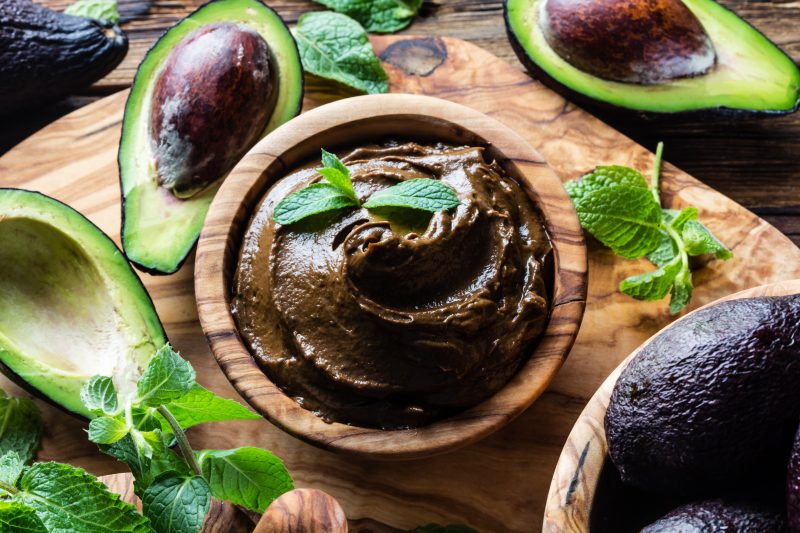Are omega-3 supplements a waste of money? Or, are omega-3 supplements good for brain health?
Recently, a report was published that stated supplements like omega-3s, may be a waste of money. They report that a recent review by the Global Council on Brain Health found there is “no convincing evidence” any supplements designed to improve or boost brain function, memory, or Alzheimer’s work (1).
The Evidence: Are Omega-3s A Waste of Money?
According to the report, the recent review mainly consisted of studies focusing on people over 50 years old. These studies stated that there was “insufficient evidence” to support the use of omega-3 fish oil supplements.
Interestingly, they did recommend eating a diet high in fatty fish for omega-3s.
The Other Side: Support for Omega-3 Supplements
Those who support the use of omega-3s for brain health suggest that supplements are not meant to treat or boost the brain, but as supplemental nutrients that are often missing.
What’s more, they state there is evidence that omega-3 supplementation can contribute to brain development and brain function.
Recent Book on Alzheimer’s, Lifestyle, and Omega-3 Supplements
An esteemed recent book by an expert and practitioner in the field disagree.
A new book called “The End of Alzheimer’s: The First Program to Prevent and Reverse Cognitive Decline” demonstrates the need for supplemental nutrients and lifestyle changes to both prevent and heal Alzheimer’s.
In fact, Dr. Dale Bredesen, M.D., states that one cause (one of three) in systemic inflammation in the body. Since we know omega-3 supplements reduce inflammation markers, it can work directly on the brain and indirectly against inflammation.
What’s more, he demonstrates the reversal of cognitive brain decline through his supplement and lifestyle programs (2).
Current Studies on Omega-3 Supplements and Health
While omega-3 supplements may not “boost” the brain function of a healthy adult or make him or her smarter, there are studies that support the use of omega-3 supplements for brain and body health and protection. Here are 4:
- Cognitive Function: One group of researchers conducted a search on studies that analyzed the relationship between cognitive impairment and omega-3 supplements (those with Docosahexaenoic Acid, Eicosapentaenoic Acid or combined) from January 2010 to December 2017 following this review. What’s more, they included interventional studies that included aged adults or elder subjects with no prior intake of Fish Oil Supplements (FOS). Here’s what they found: 10 of the 14 studies reviewed showed improved outcomes in at least one aspect of cognitive function studied (working memory, executive function, verbal memory, short-term memory, perceptual speed, etc.). They concluded that omega-3 supplementation might have a positive effect on cognitive function and could be used as a preventive or therapeutic tool for cognitive decline in aged or elder adults (3).
- Traumatic Brain Injury (TBI): TBI increases the levels of brain cell death and damage. A recent animal study found that mice who had consumed omega-3 plus betaine supplementation before the traumatic damage had a cognitive function similar to the non-TBI control group. These researchers concluded that the supplements may have had a neuroprotective role (4).
- Traumatic Brain Injury (TBI): Previously studies had established through laboratory experiments that the dietary supplementation of omega-3 fatty acids (FAs) could reduce the oxidative stress and inflammation developed in the brain due after TBI. How? It may restore compounds that influence the survival of brain cells. These researchers concluded that omega-3 fatty acid intake could be considered as a therapeutic option to reduce and prevent the secondary neuron damages initiated by TBI (5).
- Alzheimer’s Disease: One recent study found that omega-3s may improve the immune factors that are important to brain function in those with Alzheimer’s disease (6). Another study from 2017 found that omega-3 supplementation increased the unfolded protein response and improve amyloid-β phagocytosis by macrophages of patients with mild cognitive impairment (7). Lastly, another 2015 study found that omega-3 supplementation reduced brain inflammation in those with mild cognitive impairment (8).
Getting Enough Omega-3s?
Whether from foods or supplements, if you’re trying to achieve an 8:1 omega-6 to omega-3 ratio at worst, and optimally a 4:1 ratio, it takes both reducing omega-6s and increasing omega-3s. This typically means either eating at least 21 oz. of a fatty fish, like salmon, halibut, or tuna each week (9) or taking a strong Omega-3 supplement with DHA and EPAs.
Most Americans do not consume enough omega-3s in foods.
This is the purpose of omega-3s supplements. If you don’t get enough fatty fish, you can take a supplement to boost your consumption.
Krill Oil is Stronger
Did you know krill oil is stronger than fish oil when it comes to the omega-3s delivered?
You can raise your blood levels of DHA and EPA, and thereby offer protection to your brain and reduced inflammation to your body with less krill oil vs. fish oil (10).
Why?
Krill Oil is better absorbed by the body and has natural antioxidants that protect the oil itself and promote health in the body.
With Dr. Colbert’s Krill Oil, you’ll get the omega-3s and antioxidants without toxins or unsustainable practices.
Bottom Line
While a recent report of reviews concluded that fish oil supplements did not boost brain function, there are plenty of studies that show it can improve cognitive function, provide neuroprotective effects, decrease inflammation, and improve brain immune function in those with Alzheimer’s and cognitive decline. What’s more, practitioners and experts are using lifestyle changes and supplementation to prevent and even reverse cognitive decline and Alzheimer’s.
If you’re looking for a strong and effective omega-3 supplement, it’s a great idea to try Krill Oil for all these benefits.


















Comments are closed.